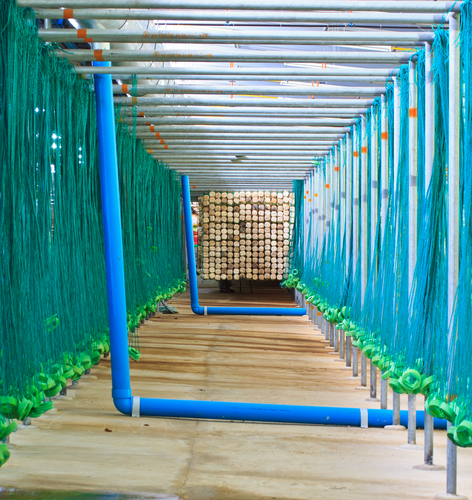Here’s something you probably didn’t know: traditional building materials not only create excessive waste once a building’s lifespan ends at demolition or decay, but the production of these materials also manufactures waste and high levels of carbon emissions. Building material production contributes heavily to air pollution and ground water toxicity. As the world turns its focus to sustainability measures, the threat posed by traditional building material manufacturing takes center stage.
The recent cultural shift toward sustainable building and green living creates a market for the research and development of conscientious home building materials. While brick, siding, and concrete have enjoyed a long run in the home building industry, developers look toward new options in the industry to execute home designs that are completely sustainable. While efficient utility usage and the use of recycled materials offers some progress, the best way for developers to make home developments green and earth friendly involves uncovering and implementing solutions all the way down to the building blocks.

Mushroom farm
While the housing market has already seen the incorporation of cork, bamboo, and rubber flooring to the offerings of sustainable building materials, a Brooklyn sustainability design think tank looks to promote the use of another naturally occurring material: mushrooms.
Planetary ONE, the urban planning and landscape design collective, is experimenting with mushroom roots to grow Mycoform bricks. The blocks offer the durability of traditional brick building materials, but utilize far less energy and emit no carbon during production. After a recycled aluminum mold is created, they plant mycelium spores that grow within the confines of the mold and feed off of organic cellular material and waste. These self-growing building blocks are strong as well as heat and water resistant.
The Reishi mushroom’s dense and tough consistency makes it the best candidate for growing building blocks. The biodegradable nature of the mushrooms makes the bricks unsuitable for lasting structures, however Planetary ONE finds that the bricks encased in aluminum molding typically enjoy a lifespan of 25-35 years making them appropriate for use in housing structures.
The lifespan sees practical application of Mycoform blocks used for housing in third-world countries. Planetary ONE has sought out grants to send its building materials and development plan to emerging economies to encourage startup manufacturing of the Mycoform bricks. Initially potential manufacturers spend $150 on a hydraulic press and $50 for the steel mold used to shape the aluminum. Manufacturers also need to build a greenhouse for growing the spores.
Mycoform blocks also provide solutions for those looking for sustainable housing options in the world’s leading economies. The durability and weather resistance of the blocks ensures that developers and homeowners looking to use the mushroom-based materials can still install plumbing, electricity, and other creature comforts. Homebuilders may even seek the services of a home security company through www.SecurityChoice.com to install a system to protect their mushroom abode.
The limited startup costs means that potential homeowners may literally grow their own house. While Mycoform has a long journey before supplanting traditional building materials, Planetary ONE’s creation does inspire the imagination and opens the window to a bright future of novel solutions to the chronic waste and pollution created by standard materials.
The Mycoform blocks offer an amazingly strong and ecologically friendly solution to traditional building materials. As the world looks toward viable solutions for the planet’s health and vitality innovations like Planetary ONE’s create a dynamic landscape for home builders and developers. As choices in sustainable materials grow, developers may continue to create increasingly efficient, environmentally sound homes.
Author: Anna Kay Hicks
Photo: Mushroom farm from Shutterstock
[source: http://feeds.importantmedia.org/~r/IM-greenbuildingelements/~3/hb8xXA81kE0/]

Leave a Reply
You must be logged in to post a comment.